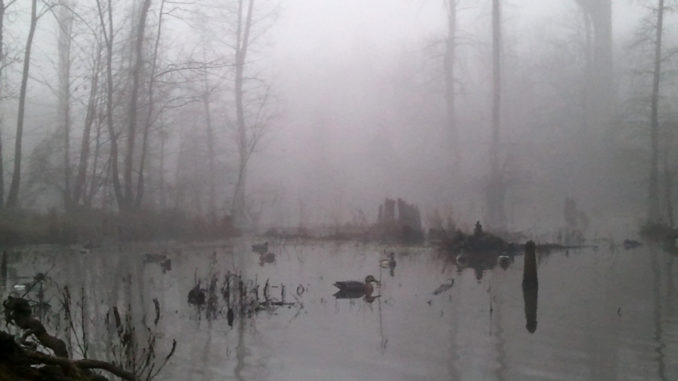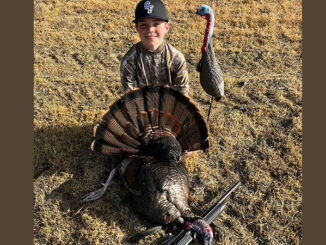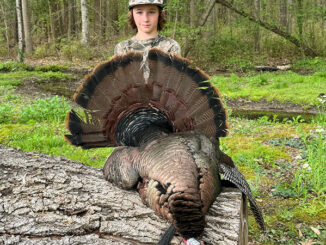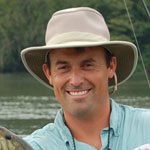
From the beginning to the close of North Carolina’s 60-day season, ducks become increasingly cautious of the common tricks and techniques practiced by most hunters.
Beginning in September, ducks start to hear and see various calls and decoy spreads, and the 1,500-mile trek from Canada to the Carolina swamps and marshlands is equivalent to an Ivy League education to every feathered fowl still living along the migration route.
No doubt, calls and decoys help hunters fool flocks of pintails and mallards, but late-season hunters must switch up tactics to bamboozle an approaching flock. Josh Roberson of Roanoke River Waterfowl (252-661-0863) discourages using rotary wing decoys late in the season.
“(Rotary wing decoys) work great in the early season, but they get smart to them later in the season,” he said. “They are real flashy and will flare ducks in the late season if run constantly.”
If Roberson uses rotary wing decoys late in the season, he will only use the models equipped with a remote.
“They work okay getting the birds’ attention, but only turn them on for a brief second or two to give off a short flash of movement,” he said.
Roberson will also revisit his use of decoys all together. Since he hunts mostly in swamps, he will often reduce his decoy spread to as little as a dozen — or sometimes none at all.
“If the birds are landing in one place one day, you better believe they will land in the same place the next day as long as they are not spooked, and decoys are not needed at all,” he said.
Calling is another way to educate birds. Every time a flock gets peppered, the surviving members associate danger with things they saw and heard just before the shotgun blasts.
“Birds that are shot at will learn quickly what that call means, especially on public water,” Roberson said.
Nevertheless, some calling is beneficial and almost necessary throughout the season. Birds may want to visit certain areas routinely, but they can be enticed to alternative feeding and resting grounds on occasion. Mild calling can often capture the passing flock’s attention.
“A simple quack to turn them will get their attention and bring them in most of the time,” Roberson said. “If you call too much and too loud when ducks are approaching, it will turn them away every time.”




Be the first to comment